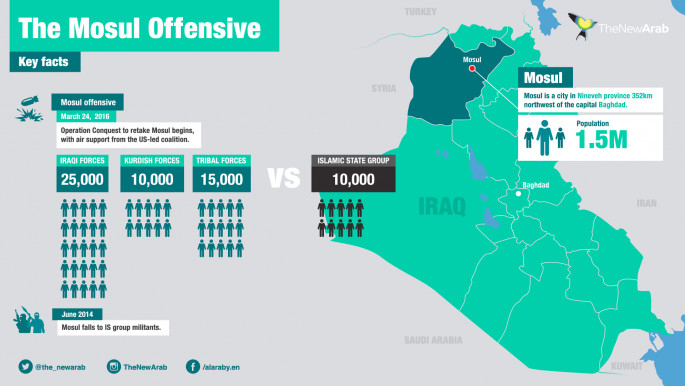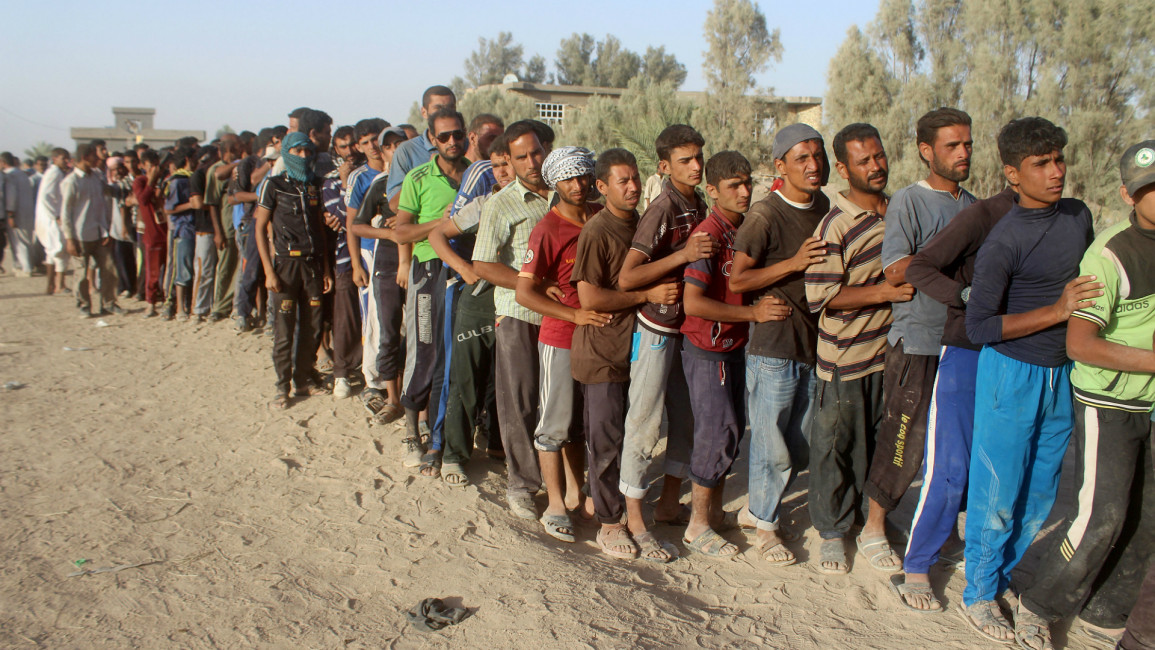Human Rights Watch urges transparency in Fallujah abuses probe
Iraqi forces - including Shia militias - retook the city from the Islamic State group last month, but the human cost appears to be heavy.
Eyewitnesses and human rights groups have alleged that Popular Mobilisation Forces - a coalition of mostly Shia militias now viewed by Baghdad to be a valid paramilitary force - committed vast human rights abuses during the assault on Fallujah.
Sunni residents in Fallujah have accused fighters of carrying out summary executions of civilians or torturing and humiliating other residents.
Human Rights Group has been looking into these claims and accused the Iraqi government of withholding basic information from investigators and said the inquiry into the crimes was "mired in secrecy".
"Failing to hold fighters and commanders accountable for grave abuses bodes very badly for the looming battle for Mosul," HRW's deputy Middle East director, Joe Stork, said in a statement, referring to the last IS-held city in Iraq.
"Serious investigations and prosecutions are essential to provide justice to victims and their families, and to deter atrocities by government forces."
On 27 June, Iraqi forces announced that they had fully recaptured Fallujah, a city 50 kilometres [30 miles] west of Baghdad.
There was strong evidence that Iraqi militias known - including Ketaeb Hizballah - who fought alongside security forces in the operation, carried out atrocities, said UN rights chief Zeid Ra'ad Al Hussein earlier this week .
The militia may have executed dozens of civilians and kidnapped hundreds more, the UN said, citing witness testimony.
 |
| [Click to enlarge] |
Prime Minister Haider al-Abadi responded to allegations of abuses during the operation by promising to investigate and prosecute all such cases.
But HRW said neither his office nor other officials "could provide any information about the purported investigations, including whether anyone has been arrested and charged".
As attention shifts from Fallujah to Mosul - where Iraqi forces are preparing another offensive against IS - there is growing worry that more civilians may face horrific violence at the hands of Iraqi forces and allied militias if they capture more territories.
Looming battle of Mosul
The battle for Mosul appears to be looming, despite repeated delays.
On Thursday, Iraqi air forces dropped millions of leaflets over the IS de facto Iraq stronghold Mosul detailing the army's victories against the militant group in Fallujah and in other military operations across the country.
The leaflets promised residents of Mosul and its suburbs of liberation from IS rule once military operations against the city come to a close, Rudaw reported.
Iraqi forces and allied local fighters recently revived operations to take back the town of Qayyarah, which lies around 60 kilometres [35 miles] south of Mosul on the banks of the Tigris River.
"Operations are underway to push out IS militants," commander of the army forces in Mosul Brigadier General Najm al-Din al-Jubouri told The New Arab.
"Advances have been slow to avoid civilian death during the fighting."
IS overran large parts of the Sunni Arab heartland north and west of Baghdad in 2014, as Iraq's national army fell apart .
Baghdad turned to powerful Shia militias to help halt the militants, and later push them back.
The militias have played a key role in the fight against IS. But they have also been repeatedly accused of abuses against civilians that have undermined the government's efforts to win back support in Sunni areas.
Agencies contributed to this report.



